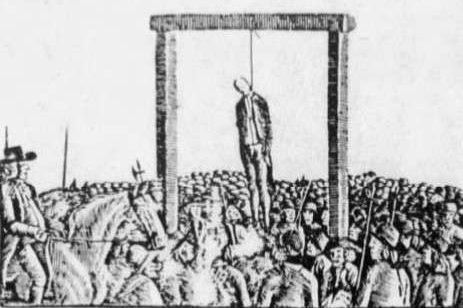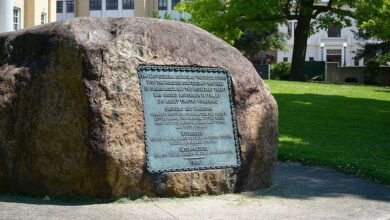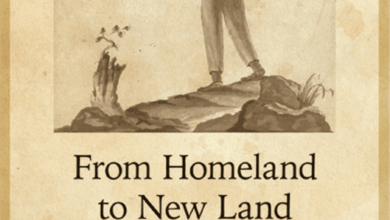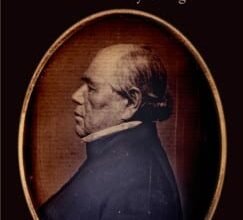A Revolutionary War Terrorist in New York


 During the American Revolution, the Ramapo Valley in southern New York was a hotbed of controversy, as tensions rose between the Enlightenment inspired Patriots fighting for freedom from English rule, and those conservatives who remained loyal to the Crown.
During the American Revolution, the Ramapo Valley in southern New York was a hotbed of controversy, as tensions rose between the Enlightenment inspired Patriots fighting for freedom from English rule, and those conservatives who remained loyal to the Crown.
Although acts of violence were committed by both sides, one person clearly stands out – Claudius Smith (1736-1779), the notorious Loyalist guerilla leader.
Smith’s family had English origins and Claudius felt he was serving the King by stealing food and horses to supply the British troops.
His gang of men was comprised of three of his four sons – James, William, and Richard, plus other local Tories and a few deserters. They terrorized the countryside, stealing from Patriot families, and stashing their loot in caves in the Ramapo Mountains.
Claudius was born in 1735 in Brookhaven on Long Island, son of David Smith (1701-1787), a miller and early English settler in Monroe, Orange County. David was at times a Justice of the Peace and Commissioner of Roads. Some accounts even list him as a preacher, though this is doubtful.
David was also a Loyalist and according to Samuel Eager’s An Outline History of Orange County (1846) even encouraged Claudius in his criminal activities.
At least one family historian reports however that David “held the respect and confidence of all who knew him… [and] the Committee of Safety did not discipline him.”
Claudius and his Cowboys
Claudius had some previous fighting experience. He had served in the Ulster County militia in 1762 during the French and Indian War (on the side of the British of course).
Later, as the Revolutionary War got under way his band of irregulars (un-enlisted volunteers), locally known as “cowboys,” plundered he neighbors’ in and around as Smith’s Clove to assist the British in crushing the Revolution. He is believed to have served wit Joseph Brant in raids on the New York frontier.
E.M. Ruttenber and L.H. Clark’s History of Orange County (1881) reports that they stole livestock to supply British forces, committed at least one burglary at the house of local Revolution supporter John Earle, robbed Captain Ebenezer Woodhull and William Bell, and killed John Clark.
They also threatened Ringwood Manor just over the New York State line in Passaic County, New Jersey, an important ironworks supplying the Continental Army and a marshaling place for Patriot troops.
Smith’s became notorious after the murder of militia Captain Nathaniel Strong on October 6, 1778. Strong was a member of the Committee of Safety and was active against the Tories in the Hudson Highlands. (He should not be confused with Major Nathan Strong (1751-1796) of the 4th NY Regiment.)
After Nathaniel Strong was killed, Claudius Smith fled to more loyalist friendly Long Island, where his family was originally from. Governor George Clinton offered a $1,200 reward for his capture.he was quickly apprehended and hanged January 22, 1779 in
Goshen, along with other Loyalists including James Flewelling, James McCormick, and Daniel Keith.
Two of Claudius’ sons were also killed – James was hung soon after his father, and William was shot in the mountains around the same time. After their deaths, the band of cowboys reorganized under Claudius’ son Richard (known as “Black Dick”). Richard Smith became a terror of the Ramapo Valley. He was never caught and at the end of the war fled to Nova Scotia.
Claudius’s fourth son Samuel Smith was a Patriot. He supported the First Continental Congress’s Articles of Association in 1775 and fought in the Orange County 4th Regiment of Militia.
Illustration: 1779 Claudius Smith hanging by unknown artist.
Source link




